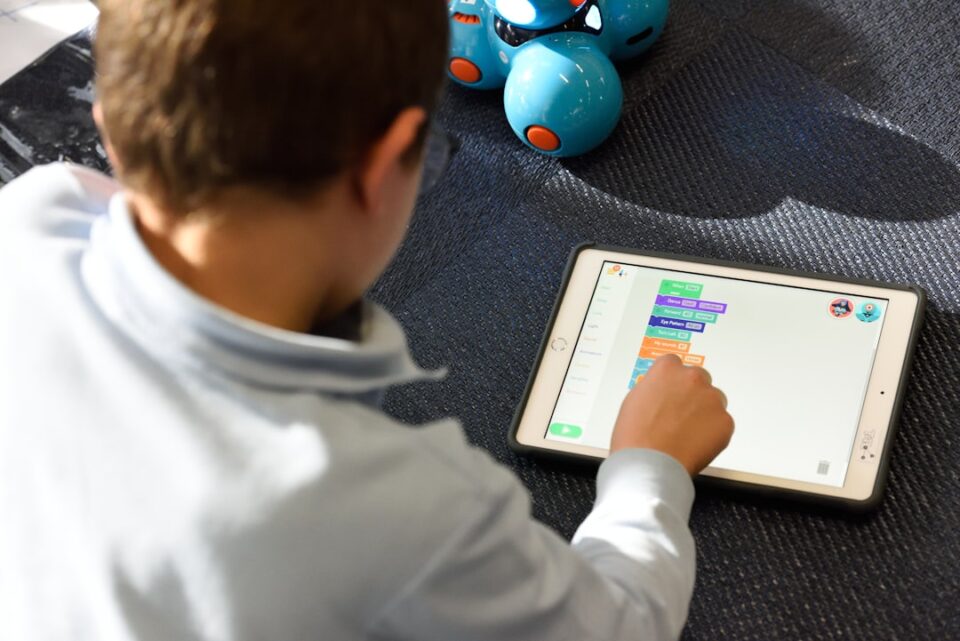In today’s digital age, online learning has become an increasingly popular and convenient way for people to further their education or gain new skills. With the vast array of online courses and platforms available, it can sometimes feel overwhelming to find the right resources and create a personalized learning experience that truly meets your needs and goals. However, with a few simple tips and tricks, you can easily customize your online learning experience to make it more engaging, effective, and enjoyable.
1. Set Clear Goals
The first step to personalizing your online learning experience is to set clear and achievable goals. Take some time to think about what you want to accomplish through your online courses and what skills or knowledge you hope to gain. By setting specific, measurable, and realistic goals, you can focus your efforts and stay motivated throughout your learning journey.
2. Choose the Right Courses and Platforms
With so many online courses and platforms available, it can be difficult to know where to start. Take the time to research different options and choose courses that align with your goals and interests. Look for courses that are taught by reputable instructors, offer interactive assignments and assessments, and provide ample opportunities for collaboration and feedback. Additionally, consider the format and structure of the courses, as well as the level of support and resources available to students.
3. Create a Study Schedule
One of the advantages of online learning is the flexibility it offers in terms of when and where you study. However, this freedom can also make it easy to procrastinate or fall behind. To stay on track and make the most of your online courses, create a study schedule that works for your lifestyle and learning style. Determine how much time you can dedicate to studying each week and break down your coursework into smaller, manageable tasks. Set aside specific blocks of time for studying, and make sure to stick to your schedule as much as possible.
4. Stay Organized
Staying organized is key to personalizing your online learning experience and achieving your goals. Keep track of important deadlines, assignments, and readings by using a planner or digital calendar. Create folders on your computer or in a physical file for each course, and make sure to save all relevant materials, notes, and resources in the appropriate place. Consider using tools such as project management software or online to-do lists to stay on top of your tasks and priorities.
5. Engage with the Material
To personalize your online learning experience, it’s important to actively engage with the material and take ownership of your learning. Take the time to read through course materials, watch video lectures, and complete assignments and quizzes. Ask questions, participate in discussions, and seek out additional resources to deepen your understanding of the subject matter. Consider creating study guides, flashcards, or summaries to help you review and retain information.
6. Connect with Instructors and Peers
One of the benefits of online learning is the opportunity to connect with instructors and peers from around the world. Take advantage of this by engaging with your instructors and classmates through online forums, discussion boards, and virtual office hours. Ask questions, share your thoughts and ideas, and collaborate on group projects and assignments. Building relationships with others in your online courses can help you stay motivated, gain new perspectives, and expand your professional network.
7. Seek Out Feedback and Support
Personalizing your online learning experience also means seeking out feedback and support to help you improve and succeed. Make sure to take advantage of any feedback provided by your instructors on assignments and assessments, and use it to identify areas for growth and development. Reach out to your instructors or mentors with any questions or concerns, and don’t hesitate to seek out additional support or resources, such as tutoring or academic advising, if needed.
8. Reflect and Adjust
As you progress through your online courses, take the time to reflect on your learning experience and make adjustments as needed. Consider what is working well for you and what could be improved, and make changes to your study habits, schedule, or approach as necessary. Be open to trying new strategies and techniques, and don’t be afraid to ask for help or feedback if you encounter challenges or obstacles along the way.
In conclusion, personalizing your online learning experience is all about taking ownership of your education, setting clear goals, and making intentional choices about how you study and engage with the material. By following the tips and strategies outlined in this blog post, you can create a customized learning experience that is tailored to your needs, interests, and goals. Remember to stay organized, stay engaged, and seek out feedback and support as needed, and you’ll be well on your way to achieving success in your online courses.

